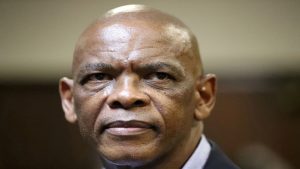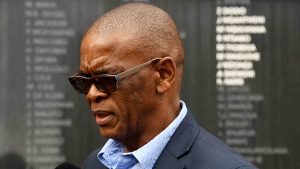Members of parliament have raised their frustration with the slow pace at which the National Prosecuting Authority (NPA) is going on prosecuting apartheid-era political crimes.
They say it is unfair on the families of victims that they have to hire their own lawyers to try and speed up the process.
Concerns were also raised about the sudden resignation of Head of the Investigative Directorate Hermione Cronje.
Some families of victims of apartheid-era crimes are nervous that the perpetrators – the majority of whom are very old – will start dying off without taking responsibility for their actions.
Lukhanyo Calata, son of one of the Cradock Four Fort Calata, expressed frustration following the death of former President FW De Klerk. He believes that De Klerk knew something about the killing of his father and the others.
MP’s in the Justice and Correctional Services Committee said the lack of progress in this regard was not on.
ANC MP, Richard Dyantyi, says no amount of justification is convincing about this lack of progress.
“The justification you are making for this lack of progress is not persuasive, is not compelling and I think the kind of presentation you are making, I think, we should ask you to go back and with some certain timelines to say by this time in January can the NDPP come back to us, not with some kind of general presentation. The NDPP or NPA has been caught with pants down on this issue of TRC. No amount of justification is convincing about this lack of progress. It’s actually a shame chair.”
NPA Head Advocate, Shamila Batohi, says while she is also keen for cases to be taken to court, acting too hastily could be detrimental to successful prosecution. She she says the NPA has now appointed dedicated prosecutors in all provinces to work on TRC matters. She added that they are keen to work with the families of the victims.
“One can ask the question, why did the NPA not deal with these matters before this date. And as I have explained this is the challenge that we were facing. We have a dedicated capacity now. And I’m asking that let’s just give this a little time to show results. And if at the end of a reasonable period, we say well this is also not working. Then let’s think about trying something else. So, for now chair, that is the position with regard to particularly the Fort Calata matter.”
Initially Batohi was reluctant to explain Cronje’s sudden departure.
“It shouldn’t come as a surprise that leaders will come and go and adv Cronje has decided to vacate at this point and the exco of the NPA and myself have supported this. This is not a sign of any collapse or crisis in the NPA. It’s healthy when leaders take an organisation to this point and leave it for a new leader with fresh new energy and pick up from where we are.”
MPs were, however, not satisfied with the explanation.
DA’s, Glynnis Breytenbach, says it is deeply concerning.
“It is deeply concerning that somebody of the caliber of Adv Cronje abandons her project on which she has obviously worked very, very hard, putting a lot of time at great personal cost half complete. It’s unlike her and it leaves me deeply concerned.”
Batohi then admitted that there were problems that led to the decision to let Cronje go.
“Of course yes, there were professional conflicts. But at our level, at the level of heads of entities, you don’t expect that we would be leaving, because there are professional tensions. And so, there’s a whole range of issues that led to the point, where I and my Exco decided it was in the best interest of the institution, of the NPA that we part ways.”
IDEO: Fort Calata Foundation disappointed by the NPA’s failure to prosecute murderers of the Cradock Four:
De Klerk takes secrets of murder of the Cradock Four to his grave: Lukhanyo Calata






